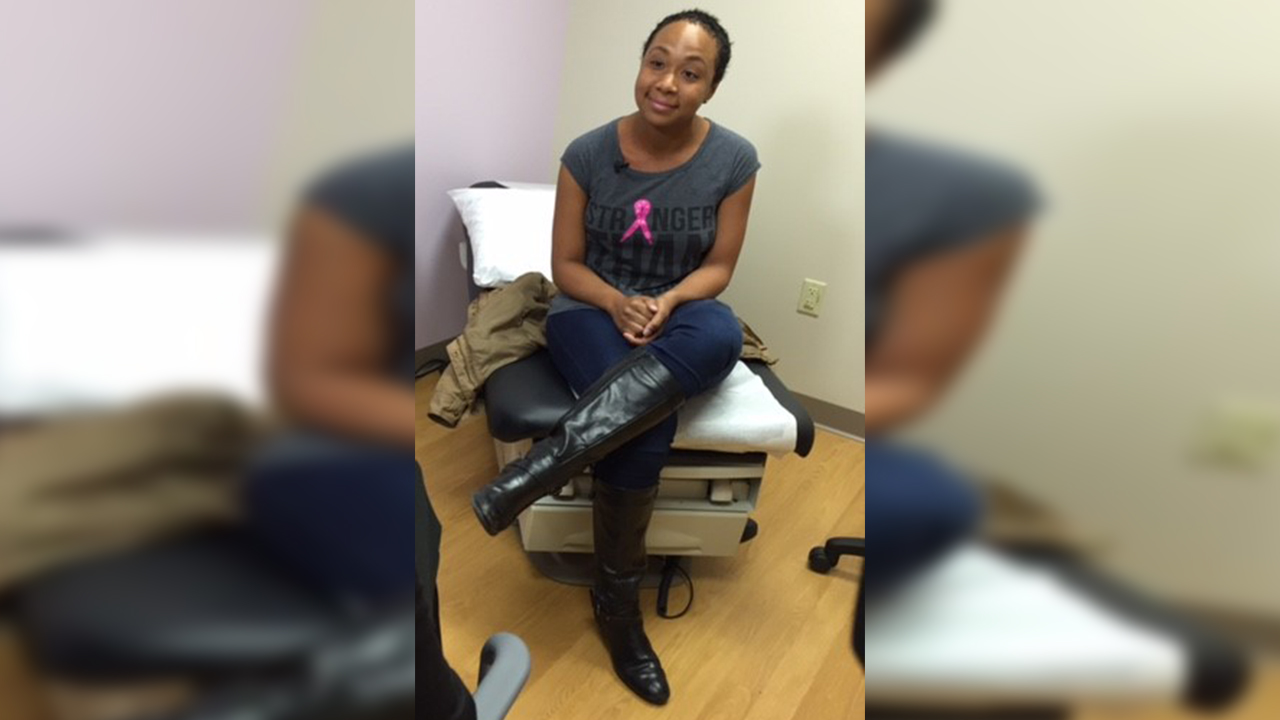Doctors, patients disagree with new mammogram recommendations
RALEIGH (WTVD) -- A little over a month ago the American Cancer Society changed its recommendations on how early women needed to start getting mammograms. Previously women had been told to start getting screened for breast cancer at 40, but these new recommendations now say you can wait till 45.
It's a change that isn't sitting well with many doctors and patients. That includes Amelia Hill, a recent N.C. State graduate who was just 23 when she learned she had breast cancer.
"When I did receive the diagnosis it did shock me because I had practically begged God not to have cancer," Hill recalls.
Her symptoms began as some itching and peeling of the skin around her nipple. But when over-the-counter treatments didn't work and she then noticed a small mass in one of her breasts, as well as a swollen lymph node in her armpit.
"I did Google my symptoms prior to being diagnosed. And my mom kept telling me to stay away from the internet. But I went on reputable medical sites like WebMD and the Mayo Clinic and all of my symptoms matched with Paget's disease, which is a rare form of breast cancer," she explained
Upon learning that she was stage 2 and the disease had already spread to her lymph nodes, she immediately began treatment.
"I went through 4 to 6 months of chemotherapy. That was a really difficult time," she recalled. "You know some women are able to work and do many different things, but it took me at least 10 to 11 days at a time to recover. I remember days upon days without being able to even hold food down."
"It was just a really difficult time for me, when I was sleeping (because) if I was awake I was in pain."
Between the chemo and a double mastectomy, she eventually learned that she was cancer-free and now she's determined to go back to school to get both a masters in some type of religious studies and a law degree.
"I feel like conquering cancer, I feel like I can do anything!" she exclaimed with a smile.
Still, her positive outlook might be much different today had she not listened to her body and gone for a check-up when she did.
She's just one of many women who have had breast cancer at an early age which is why she and other doctors are troubled by the American Cancer Society's new guidelines on when women should start getting mammograms.
"When the new recommendations came out for mammograms beginning at 45 we were all very shocked. We did not see that coming," said Hill's Oncologist at Rex, Rachel Jendro, M.D. "We have not seen any research to support that you should start later in life with your mammograms."
As a result, Dr. Jendro and many other doctors across the country still recommend you start getting mammograms at age 40, or earlier if you have a family history.
"We see patients with cancer in their 40's, 30's, even in their 20's. So, beginning later in life does not make sense when you can pick up something much earlier and smaller. And the smaller you pick up a breast cancer, the more treatable and curable things are," Jendro said.
Dr. Jendro adds that if you're concerned insurance won't cover an earlier mammogram, you should talk to your physician.
"We can also order a diagnostic imaging and insurance does cover that. So, if it does become an issue you can be ordered differently to make sure it's covered," she explained.
If you think you don't have to worry about it till a specific age, think again. Both Dr. Jendro and Hill recommend doing regular self-exams and listening to your own body.
"If you notice something wrong, go get it checked out. It can happen to anyone. You know, breast cancer, cancer in general, it really doesn't care. It does not care how old you are," Hill said.
From the American Cancer Society:
Breast cancer
- Women ages 40 to 44 should have the choice to start annual breast cancer screening with mammograms (x-rays of the breast) if they wish to do so.
- Women age 45 to 54 should get mammograms every year.
- Women 55 and older should switch to mammograms every 2 years, or can continue yearly screening.
- Screening should continue as long as a woman is in good health and is expected to live 10 more years or longer.
- All women should be familiar with the known benefits, limitations, and potential harms linked to breast cancer screening. They also should know how their breasts normally look and feel and report any breast changes to a health care provider right away.
Some women - because of their family history, a genetic tendency, or certain other factors - should be screened with MRIs along with mammograms. (The number of women who fall into this category is very small.)
Talk with a health care provider about your risk for breast cancer and the best screening plan for you.
For more information go to cancer.org





